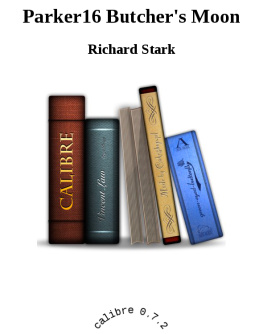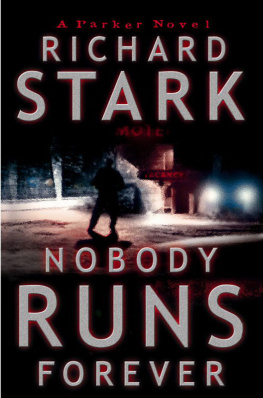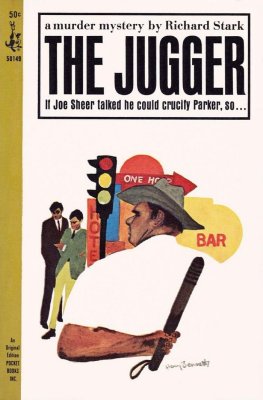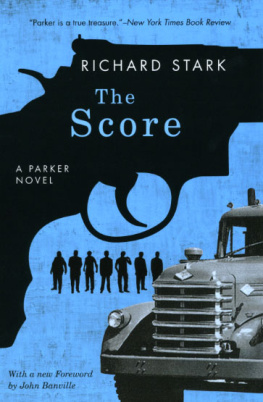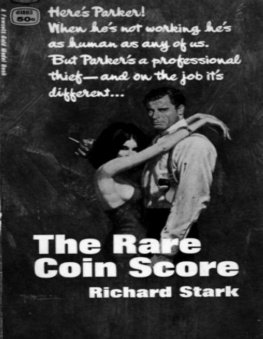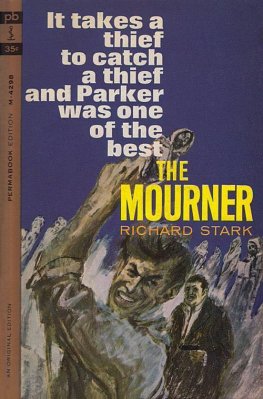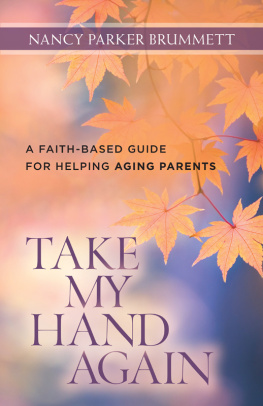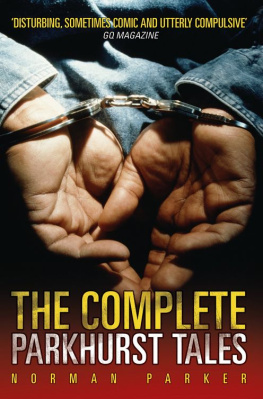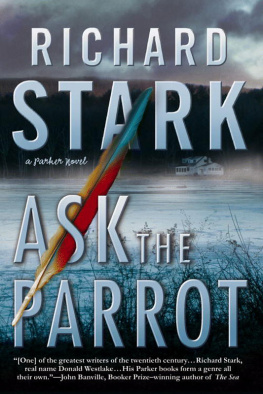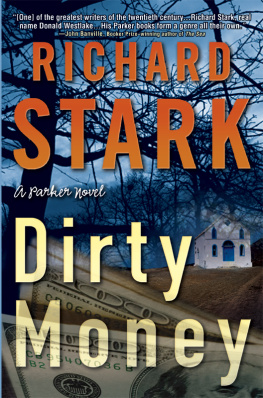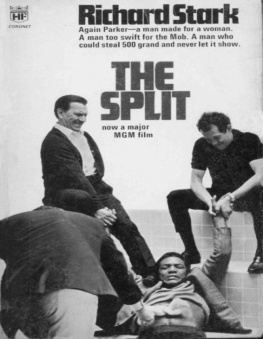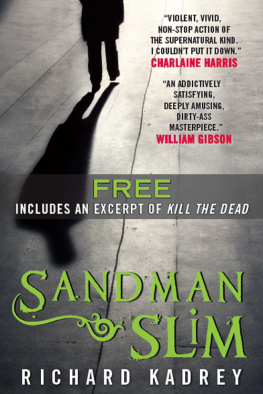THE HUNTER (1962)
RICHARD STARK
Donald Westlake writing as Richard Stark. Filmed as Point Blank with Lee Marvin and Payback with Mel Gibson.
PART ONE
Chapter 1
When a fresh-faced guy in a Chevy offered him a lift, Parker told him to go to hell. The guy said, "Screw you, buddy," yanked his Chevy back into the stream of traffic, and roared on down to the tollbooths. Parker spat in the right-hand lane, lit his last cigarette, and walked across the George Washington Bridge.
The 8 A.M. traffic went mmmmmm, mmmmmm, all on this side, headed for the city. Over there, lanes and lanes of nobody going to Jersey. Underneath, the same thing.
Out in the middle, the bridge trembled and swayed in the wind. It does it all the time, but he'd never noticed it. He'd never walked it before. He felt it shivering under his feet, and he got mad. He threw the used-up butt at the river, spat on a passing hubcap, and strode on.
Office women in passing cars looked at him and felt vibrat ions above their nylons. He was big and shaggy, with flat square shoulders and arms too long in sleeves too short. He wore a gray suit, limp with age and no pressing. His shoes and socks were both black and both holey. The shoes were holey on the bottom, the socks were holey at heel and toe.
His hands, swinging curve-fingered at his sides, looked like they were molded of brown clay by a sculptor who thought big and liked veins. His hair was brown and dry and dead, blowing around his head like a poor toupee about to fly loose. His face was a chipped chunk of concrete, with eyes of flawed onyx. His mouth was a quick stroke, bloodless. His suit coat fluttered behind him, and his arms swung easily as he walked.
The office women looked at him and shivered. They knew he was a bastard, they knew his big hands were born to slap with, they knew his face would never break into a smile when he looked at a woman. They knew what he was, they thanked God for their husbands, and still they shivered. Because they knew how he would fall on a woman in the night. Like a tree.
The office men drove by, clutching their steering wheels, and hardly noticed him. Just a bum walking on the bridge. Didn't even own a car. A few of them saw him and remembered themselves before they'd made it when they didn't have a car. They thought they were empathizing with him. They thought it was the same thing.
Parker walked across the bridge and turned right. He went down that way one block to the subway hole. All down the street ahead of him were the blacktop and the sidewalks and the gray apartment buildings and the traffic lights at every intersection going from red to green to red. And lots of people, on the move.
He trotted down the steps into the subway hole. The spring sun disappeared, and there were fluorescent lights against cream-shaded tile. He went over to the subway-system map and stood in front of it, scratching his elbow and not looking at the map. He knew where he wanted to go.
The downtown train pulled in, already crowded, and the doors slid back. More people pushed on. Parker turned, yanked open the no admittance door and went on through. Somebody behind him shouted, "Hey!" Ahead, the subway doors slid at each other. He jumped, ran into the people standing in the car, and the doors met behind him.
He went all the way downtown, got out at Chambers and walked over to the Motor Vehicle Bureau on Worth. On the way, he panhandled a dime from a latent fag with big hips and stopped in a grimy diner for coffee. He bummed a cigarette from the counter girl. It was a Marlboro. He twisted off the filter, threw it on the floor, and stuck the cigarette between his bloodless lips. She lit it for him, leaning over the counter toward him with her breasts high, like an offering. He got the cigarette fired, nodded, dropped the dime on the counter, and went out without a word.
She looked after him, face red with rage, and threw his dime into the garbage. Half an hour later, when the other girl said something to her, she called her a bitch.
Parker went on to the Motor Vehicle Bureau and stood at the long wooden table while he filled out a driver's license form with one of the old-fashioned straight pens. He blotted the form, folded it carefully, and stuck it into his wallet, which was brown leather and completely empty and beat to hell.
He left the Bureau and walked over to the post office, where the federal government was in charge and they had ball-point pens. He took out the license and stood hunched over it, sketching with small quick strokes in the space reserved for the state stamp. The ball-point pen had ink of almost the right color, and Parker's memory of the stamp was clear.
When he was finished, it looked all right for anybody who didn't inspect it closely. It just looked as though the rubber stamp hadn't been inked well enough or had been jiggled when it was pressed to the paper or something. He smudged the damp ink a bit more with his finger, licked the finger clean, and returned the license to his wallet. Then he crumpled and bent the wallet in his hands before putting it back in his hip pocket.
He walked up to Canal Street and went into a bar. It was dark in there, and clammy. The barman and his one customer stopped mumbling down at the end of the bar and looked at him, their expressions like those of fish looking out through the glass wall of a tank.
He went on down, ignoring them, and pushed open the spring door to the men's room. It slammed behind him.
He washed his face and hands in cold water without soap, because there wasn't any hot water and there wasn't any soap. He got his hair wet and pushed it around with his fingers until it looked all right. He stroked his palm up his jawline and felt the stubble, but it didn't show bad yet.
Taking his tie from his inside jacket pocket, he ran it taut through his fingers, to get the wrinkles out of it, and put it on. The wrinkles still showed. He had a safety pin attached to the lining of his jacket. He took it and pinned the tie to the shirt, where it wouldn't show. Pulled down that way, and with the jacket closed, it looked pretty good. And you couldn't see that the shirt was dirty any more.
He wet his fingers at the sink again, and forced the approximation of a crease into his pant legs, stroking down again and again until a vague line showed and stayed there. Then he looked at himself in the mirror.
He didn't look like any Rockefeller, but he didn't look like a bum either. He looked like a hard worker who never got out of the mailroom. Good enough. It would have to do.
He got out the driver's license one last time and dropped it on the floor. He squatted beside it, and patted the license here and there on the floor till it was reasonably dirty. Then he crumpled it some more, brushed the excess dirt off, and put it back in his wallet. One last rinsing of his hands, and he was ready to leave.
The bartender and his customer stopped mumbling again as he went by, but he didn't notice. He went back out into the sunlight and headed uptown and west, looking for just the right bank. He needed a bank that would have a lot of customers of the type he was faking.
When he found the one he wanted, he paused for a second and concentrated on rearranging his face. He stopped looking mean and he stopped looking mad. He kept working at it, and when he was sure he looked worried he went on into the bank.
There were four desks to his left, two of them occupied by middle-aged men in business suits. One of them was talking with an old woman in a cloth coat who was having trouble with English. Parker went straight over to the other and added a smile to the worried expression.
"Hello," he said, making his voice softer than usual. "I got a problem, and maybe you can help me. I've lost my checkbook, and I can't remember my account number."
Next page

